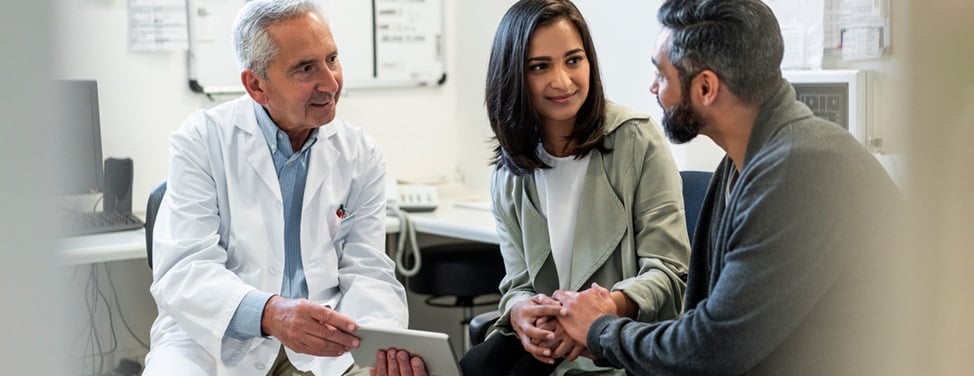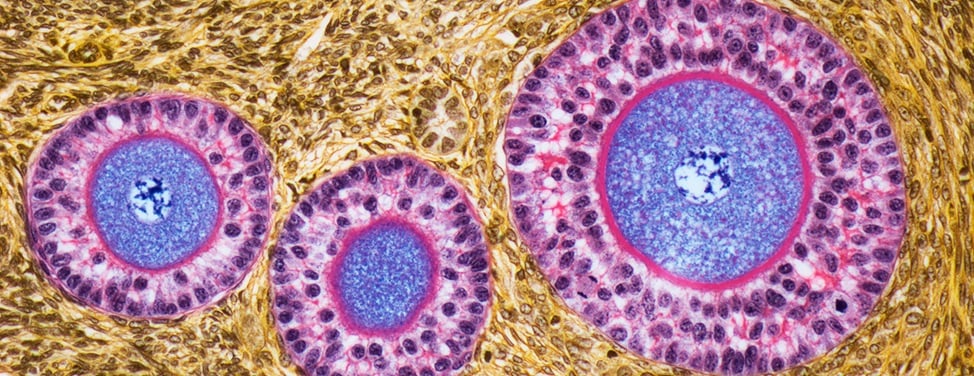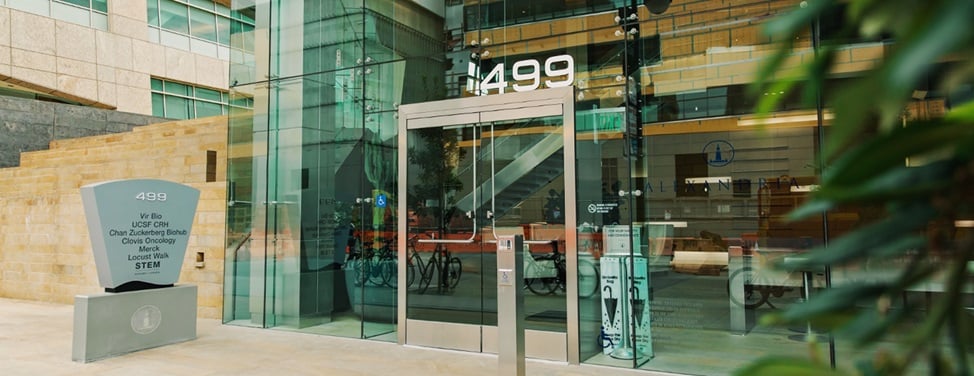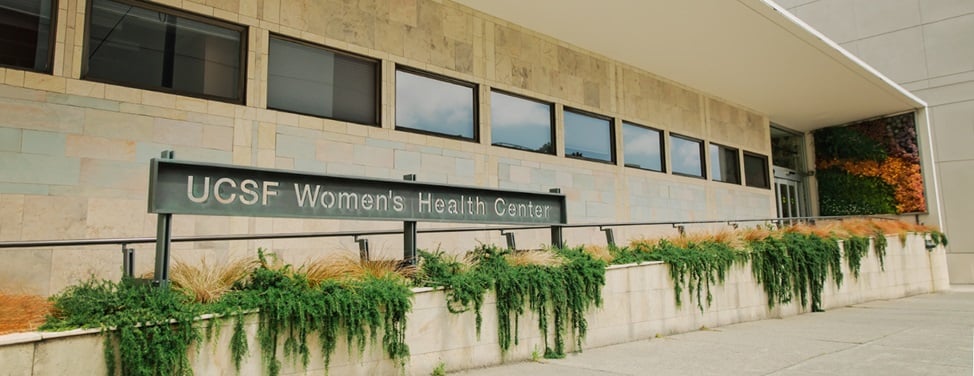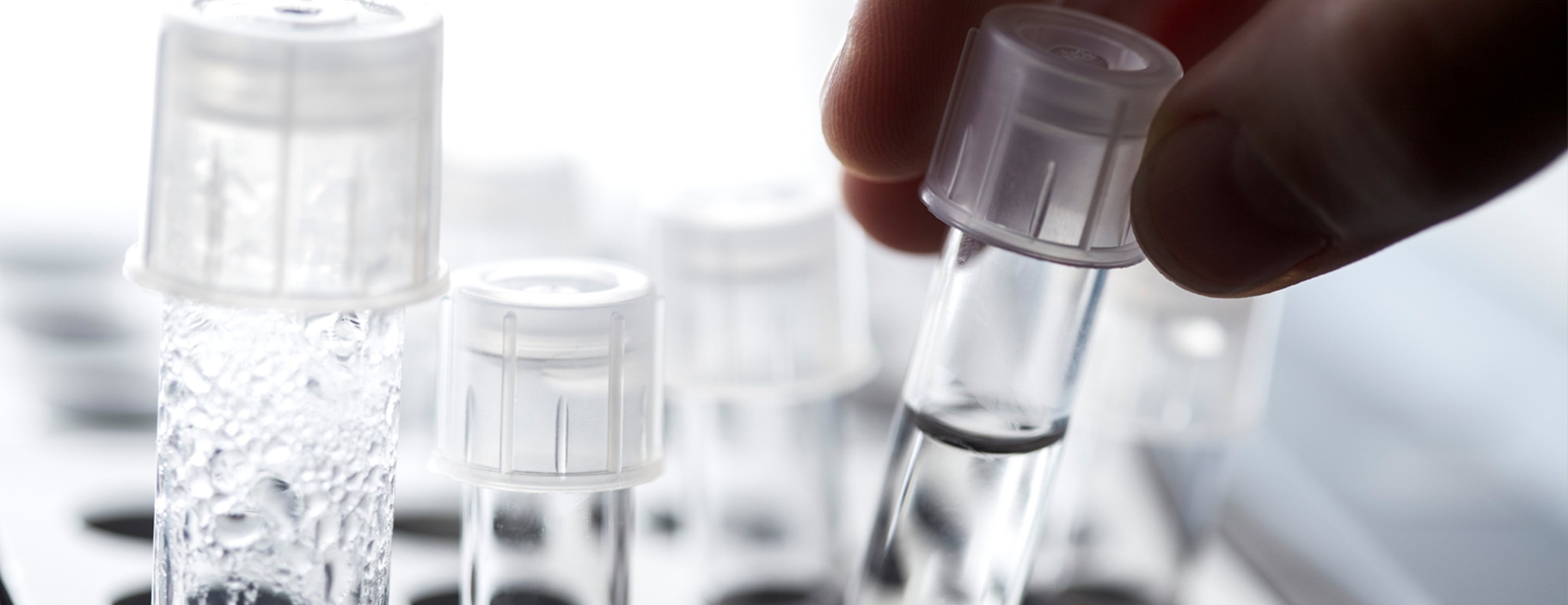
FAQ: Common Questions for Egg Donors
- Who receives donor eggs?
- As a potential donor, why should I choose the UCSF program?
- If I'm interested in participating, how do I get started?
- What's involved in the screening process?
- What's the compensation?
- Can you describe the process?
- How much time is involved?
- Will I need to give myself shots?
- Are there possible side effects and risks?
- Are there any restrictions on activity during the process?
- Can I become pregnant during treatment?
- Will being a donor impact my fertility or deplete my eggs?
- Can I still work or go to school?
- What are my responsibilities if I agree to become a donor?
- Do I have legal responsibilities to any child born?
- Will the recipients meet me?
- Can I donate more than once?
Couples generally choose this option because they're unable to conceive with the eggs of the partner who will carry the child. Women may be unable to conceive with their own eggs for many reasons, such as being older, having experienced early menopause, having poor-quality eggs or having a history of cancer treatments that damaged their ovaries. Egg recipients have often gone through extensive fertility treatments without success.
Egg recipients can be couples, single women or single men (using a surrogate). At UCSF, all recipients in our egg donor program are UCSF patients.
As a potential donor, why should I choose the UCSF program?
The UCSF Egg Donor Program is part of the UCSF Center for Reproductive Health. All of our doctors are board-certified in obstetrics and gynecology as well as in reproductive endocrinology and infertility. We've been helping patients become parents using donated eggs since 1991 – when we were one of the Bay Area's first programs to do so. Our expertise is complemented by the commitment and care of a large team of professionals that includes genetic counselors, psychologists, highly trained nurses and detail-oriented office staff members.
Because the UCSF Ovum Donor Program provides eggs only to UCSF patients, you receive all your care in one setting. Egg donor agencies may send you to donate at various locations, which may have different processes.
If I'm interested in participating, how do I get started?
We would love to hear from you. Please download a questionnaire, fill it out and email it to [email protected]. In reviewing it, we will consider whether to have you continue the screening process. Alternatively, you may call our egg donor coordinator at (415) 514-5615 or email us at [email protected].
What's involved in the screening process?
You will complete a detailed questionnaire on your background and medical, family and personal history. After our staff reviews it, we may call to arrange screening appointments with our psychologist and genetic counselor. The last step in the screening process includes a physical exam and certain laboratory tests.
We offer ovum donors $14,000 for their time, travel and efforts; payment is provided once they complete an ovum donation cycle. The pre-donation medical screening is performed at no cost to you, and you may request results of the medical tests for your own records or to give to your doctor.
Many egg donors say that the positive emotional impact of egg donation is an additional form of compensation. Knowing you've helped someone have a family can be very rewarding.
For a detailed description, please see Egg Donation Process for Donors.
Completing the screening process generally takes a few weeks. You will speak with the program coordinator by phone and come to our Mount Zion location for a few short office visits. Once you're chosen as an egg donor, a cycle takes approximately four weeks.
During a two-week period, you'll come to the clinic about seven to 10 times for ultrasound monitoring and blood tests. These morning appointments generally take 15 to 30 minutes. The day of the egg retrieval procedure, you'll be at our clinic for a large portion of the day. Most donors are able to continue working or going to school during the overall process but take a day or two off for the scheduled procedure.
Will I need to give myself shots?
The injections are done at home. You can give them to yourself or have a friend or family member help you. We'll teach you how to mix and administer the medications.
Are there possible side effects and risks?
Yes. As with any medical procedure, egg donation has possible side effects and risks. Many women feel little or no discomfort during the donation cycle. Others have symptoms that typically resolve after the egg retrieval procedure. Possible symptoms from the hormone medications include bloating, abdominal pain and swelling, breast tenderness and moodiness; they will resolve by your next menstrual period. Severe side effects are rare, but before you decide whether to join the program, a doctor will discuss them with you.
Side effects and risks can be categorized by elements of the donation process:
- Injection side effects and risks – Most patients tolerate the blood tests and hormone injections well, but some experience pain, redness or minor bruising at the injection or blood draw site. Allergic reactions are rare.
- Medication side effects and risks – There is a small risk of ovarian hyperstimulation syndrome (OHSS) developing during an egg donation cycle. OHSS generally occurs after the egg retrieval and involves swelling of the ovaries, bloating, weight gain and abdominal pain. In its mild form, OHSS can be uncomfortable but resolves on its own over several days. The severe form – which occurs in about 1% of donor cycles and can require hospitalization for monitoring – may be marked by rapid weight gain, severe abdominal swelling or pain, shortness of breath, nausea and vomiting, and even blood clots. While serious, the condition usually lasts no more than one week.
- Procedure side effects and risks – The egg retrieval procedure is guided by transvaginal ultrasound. The risk of serious complications from this procedure is low (about one in 1,000). Serious complications would be bleeding that requires observation in the hospital, blood transfusion or both; damage to internal organs; and infection.
- Other side effects and risks – The evidence to date doesn't suggest that donating eggs increases your risk of breast or ovarian cancer. There is also no evidence that it increases your risk of infertility.
Are there any restrictions on activity during the process?
You can get pregnant during the egg donation process, so we ask that you abstain from intercourse during this time.
Your ovaries become enlarged during the egg donation process. For your own safety, you should refrain from high-impact activities – such as running, mountain biking and anything that involves jumping – until several weeks after egg retrieval. After approximately one month, your ovaries will have returned to their normal size.
Can I become pregnant during treatment?
Yes! That's why it's important to avoid intercourse from the time you start the hormone medication until three weeks after your egg retrieval. This will prevent an unwanted pregnancy and ensure the cycle goes as planned.
Will being a donor impact my fertility or deplete my eggs?
No. The procedure itself doesn't have an impact on your future ability to have biological children. Women are born with about 2 million eggs. Each month, a group of eggs begins the maturation process, but the body discharges only one egg each cycle (ovulation) and absorbs the rest. Fertility medications "rescue" some of these excess eggs that the body would ordinarily discard.
Can I still work or go to school?
Although the egg donation process requires you to adhere strictly to your medication and clinic appointment schedule, most women are able to continue with work and school.
However, you must take medications as instructed – which includes taking them at the right times. You must be on time for all monitoring appointments, and you must arrange for transportation to and from the clinic on the day of your egg retrieval procedure. This means you need to prioritize your egg donor cycle during the few weeks that it occurs, and you might have to reschedule other events, classes or work commitments.
What are my responsibilities if I agree to become a donor?
You are agreeing to do the following:
- Be truthful during all parts of the donor screening process.
- Follow doctors' orders during the treatment cycle.
- Adhere strictly to your medication and appointment schedule. Follow instructions exactly, and be punctual. Make the egg donor process a top priority during this time.
- Arrange for transportation to and from the egg retrieval procedure.
- Abstain from sex from the time you start the hormone medication until three weeks after your egg retrieval.
Do I have legal responsibilities to any child born?
When you agree to donate your eggs, you are giving up all rights and responsibilities associated with the eggs and any child born as a result of using them.
Most egg donor arrangements are anonymous, meaning you won't know the recipients and they won't know you. Non-identifying information about you is shared with the recipients. For example, we share the following information: your blood type, ethnic background of your mother and father, height, weight, body build, eye color, hair color and texture, years of education, occupation, special interests and family medical history. Pictures you give us will also be shared with potential recipients. We will not share your last name, address, telephone number or email address.
We are committed to creating egg donation arrangements that fit the personal needs of both donor and recipient. Some donors and recipients are interested in meeting each other, and we support that process, if all parties are willing. On your application, you will indicate whether you're willing to meet the recipients and whether you would be willing to meet their child when the child is an adult.
Yes. If all goes well with your first egg donation cycle, we would be happy to have you come back and donate again. Repeat donation may take less of your time because you will have already completed the initial screening process.
For your safety, ovum donors can donate no more than six times. This guideline was set by the American Society for Reproductive Medicine.
UCSF Health medical specialists have reviewed this information. It is for educational purposes only and is not intended to replace the advice of your doctor or other health care provider. We encourage you to discuss any questions or concerns you may have with your provider.








